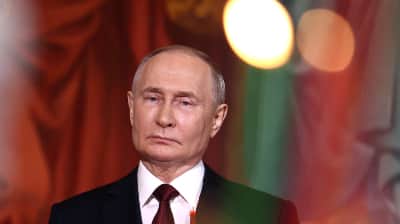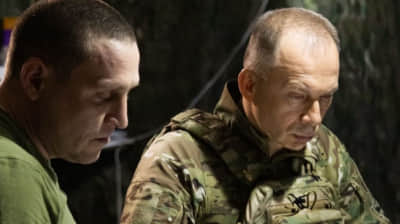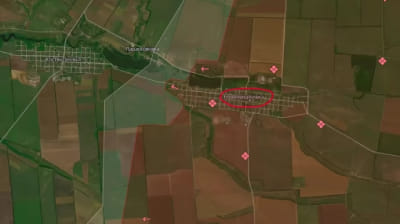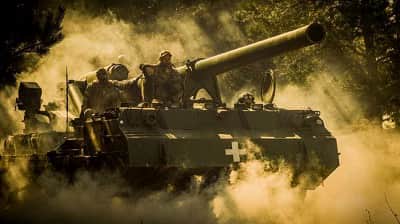Introduction of Russian conventional forces offsets culmination of offensive at Bakhmut
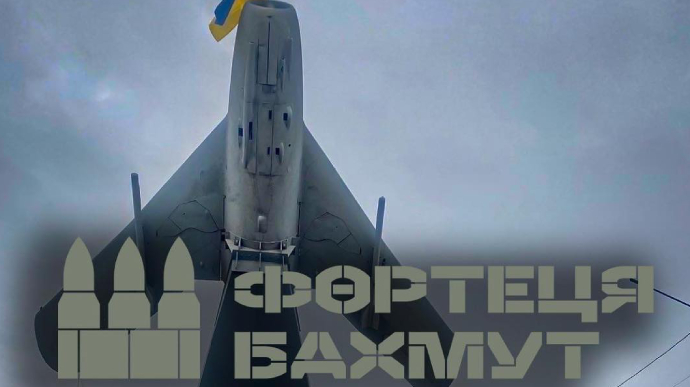
Analysts of the Institute for the Study of War (ISW) have stated that the introduction of Russian conventional forces to the Bakhmut frontline has offset the culmination of the Wagner Group’s offensive and retained the initiative for Russian operations around the city.
Source: ISW
Details: The introduction of Russian conventional forces to the Bakhmut frontline has offset the culmination of the Wagner Group’s offensive; therefore, the battle for the city is ongoing.
The Wagner Group offensive culminated, as ISW assessed on 28 January, but the Russian command has committed sufficient conventional Russian forces to the effort to reinvigorate it, thus forestalling the overall culmination of the offensive on Bakhmut, which continues.
The commander of a Ukrainian unit operating in Bakhmut, Denys Yarolavskyi, confirmed that "super qualified" Russian conventional military troops are now reinforcing Wagner Group private military company (PMC) assault units in an ongoing effort to encircle Bakhmut.
ISW does not forecast the imminent fall of Bakhmut to Russian forces, although the Ukrainian command may choose to withdraw rather than risk unacceptable losses.
Russian officials are again overestimating Russian military capabilities to advance in Donetsk Oblast and on the battlefield in a short period of time.
The so-called Kremlin-appointed head of the "Donetsk People’s Republic" [a self-proclaimed and non-recognized "republic" in Donetsk Oblast – ed.], Denis Pushilin, stated on 31 January that the Russian capture of Bakhmut will allow Russia to advance to Kramatorsk and Sloviansk, and the hypothetical Russian capture of Vuhledar would allow Russian forces to launch offensive operations on Kurakhove, Marinka, and Pokrovsk – despite the inability of Russian forces to capture Marinka since 17 March 2022, when the Russian Ministry of Defence falsely claimed to have seized the settlement.
Pushilin had also groundlessly claimed that Russian forces would seize Avdiivka.
The ISW summed up: "Pushilin’s expectations for Russia's hypothetical seizure of Bakhmut further demonstrate that Russians are continuing to face challenges in accurately assessing the time and space relationship with the account for Russian military capabilities."
Russian conventional forces may be replacing expended Wagner PMC forces by relocating them from Bakhmut to the frontlines in southern Ukraine.
The Russian Ministry of Defence may be attempting to fully supplant Wagner forces near Bakhmut and frame the traditional Russian military command structure as the sole victor around Bakhmut, assuming Russian forces eventually take the city.
ISW’s Key Takeaways as of 31 January:
- The introduction of Russian conventional forces to the Bakhmut frontline has offset the culmination of the Wagner Group’s offensive. ISW's 27 December forecast that the Russian offensive against Bakhmut was culminating was inaccurate.
- ISW does not forecast the imminent fall of Bakhmut, and it is extraordinarily unlikely that Russian forces will be able to conduct a surprise encirclement of Ukrainian forces in Bakhmut.
- Russian military command is overestimating Russian military capabilities to advance rapidly in Donetsk Oblast and on the battlefield.
- Russian conventional forces may be replacing expended Wagner PMC forces by relocating them from Bakhmut to the Zaporizhia Oblast front line.
- The Russian Ministry of Defense may be attempting to fully supplant Wagner forces near Bakhmut to frame the traditional Russian military command structure as the sole victor around Bakhmut, assuming Russian forces take the city.
- Ukrainian officials continue to support ISW’s assessment that an imminent Russian offensive in the coming months is the most likely course of action (MLCOA) and further suggested that Ukrainian forces plan to launch a larger counteroffensive.
- Prominent Russian military bloggers continue to expose Russian military failures in Ukraine through increasingly public and elevated platforms.
- Russia continues to weaponize counterterrorism laws to justify domestic repressions.
- Russian forces continued limited ground attacks to regain lost positions along the Svatove-Kreminna line on 31 January and offensive operations along the Donetsk Oblast front line.
- Russian forces are unlikely to benefit significantly elsewhere in eastern Ukraine from their localised offensive around Vuhledar.
- Russian forces are likely prioritising sabotage and reconnaissance activities over territorial gains in southern Ukraine.
- Russian Prosecutor General Igor Krasnov acknowledged Russian mobilisation failures in an attempt to frame implementation failures and policy violations as resolved.
- Russian occupation authorities continue to use youth engagement and education programs to consolidate social control of occupied territories.
Journalists fight on their own frontline. Support Ukrainska Pravda or become our patron!



